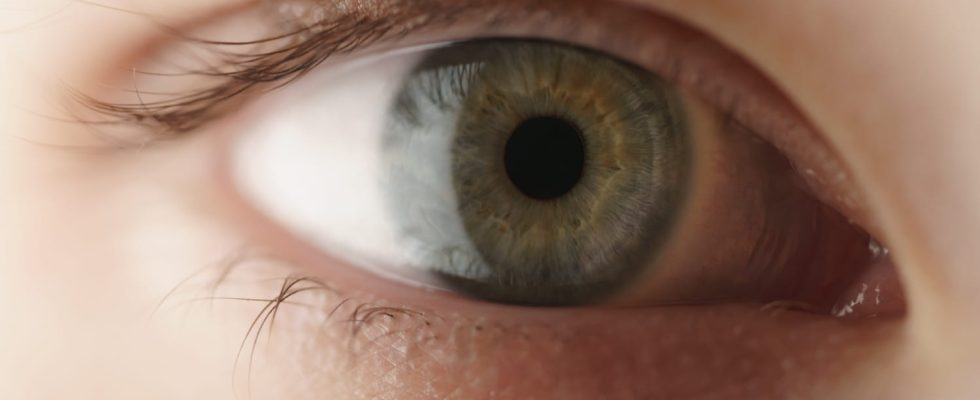People who hear less and less well have a very easy to spot characteristic in their eyes, according to a study.
You’ve probably noticed that someone who doesn’t listen to you is often betrayed by the expression on their face. The same is true of people who have poor hearing, according to a Canadian study, which focused more specifically on their gaze. Researchers Eric Cui and Björn Herrmann believe that your gaze says a lot about your way of listening to others and in particular allows you to perceive warning signs of hearing loss.
The scientists conducted three experiments to demonstrate their theory. Each time, young adults who judged that they heard well listened to sound sequences while a computer screen was placed in front of their faces. Their pupils and eye movements were recorded while the sounds were played. Listening and understanding of the sound extracts were then assessed during an oral comprehension test.
The sign that does not deceive
The study participants first listened to speeches and conversations interspersed with meaningless sounds, then a succession of short sentences and finally sound extracts lasting around ten minutes – one understandable but interrupted by meaningless chatter. and the other with scenes scrambled and broadcast out of order. At the same time, they had fixed geometric figures before their eyes, then one, then several points moving randomly.
All the results led to the same conclusions: when a person captures and understands a sound, their eyes tend to move, but the more complicated the understanding becomes, the more they freeze. This study, published in the Journal of Neuroscienceechoes previous publications which prove that the gaze moves less when a person is thinking or concentrating on a specific task.
The authors of the study point out that a frozen look when someone is listening to you does not necessarily mean that there is a problem in progress or in the future. This may be a simple demonstration of concentration. But this particularity can also be a first sign of difficulty. An easy clue to spot and which can lead to early detection.
If the advice of a specialist is essential, this simple observation could in the future make it possible to anticipate and therefore improve the daily lives of the people concerned. All this knowing that current tests only make it possible to identify a defect after ten years after the first slight losses, i.e. when the damage has already been done or well established.
